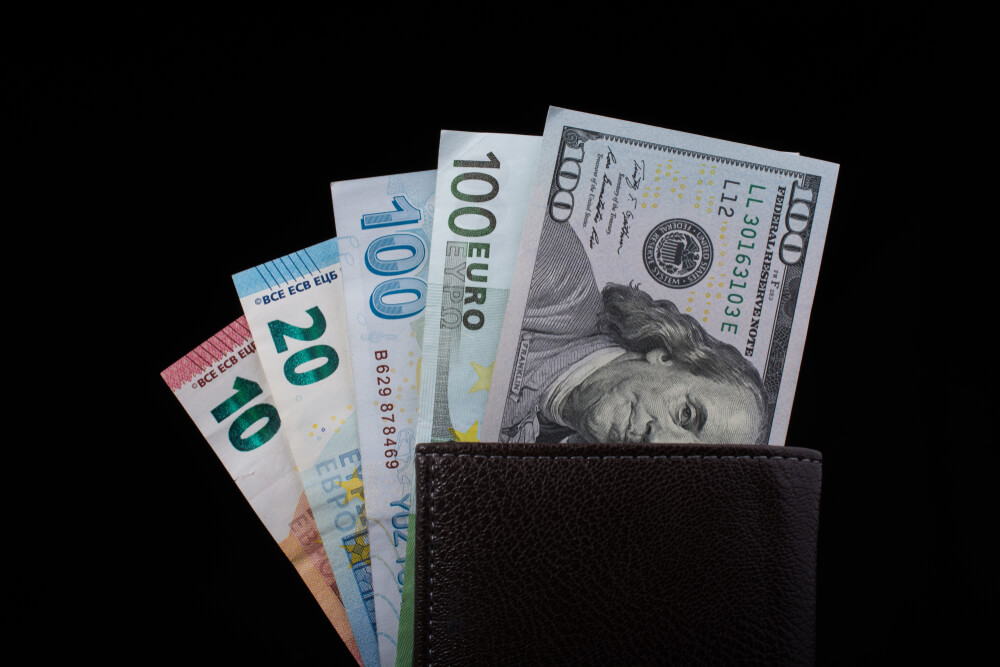Stocks are skidding on Wall Street Friday, following even sharper drops in Europe, as investors worried about the financial stability of Turkey. The Turkish lira nosedived again following concerns about the country’s economic policies and higher tariffs from the U.S.
European banks are taking some of the worst losses. Seeking safety, investors are buying U.S. dollars and government bonds. The rising dollar helped U.S-focused companies but hurt big exporters. Rising bond prices are sending interest rates lower, hurting banks.
KEEPING SCORE: The S&P 500 index slid 20 points, or 0.7 percent, to 2,833 at closing. That wiped out the S&P’s gains from earlier this week.
The Dow Jones Industrial Average dropped 196 points, or 0.8 percent, to 25,313. The Nasdaq composite, which has risen for eight days in a row, sank 53 points, or 0.7 percent, to 7,839.
The Russell 2000 index of smaller-company stocks took a smaller loss of 2 points, or 0.2 percent, to 1,688. The companies in that index are less reliant on exports, and the stronger dollar makes their imports less costly.
TURKEY: The Turkish lira dropped again and is now down 40 percent this year against the dollar. The weakening lira has been pushing up the cost of goods for Turkish people and shaken international investors’ confidence in the country.
Investors are worried about Turkish President Recep Tayyip Erdogan’s unorthodox economic views. Erdogan says higher interest rates lead to higher inflation, the opposite of what standard economic theory says. As a result he’s pushed Turkey’s central bank to keep interest rates low, threatening its independence.
U.S. President Donald Trump said Friday he will authorize the government to double a tariff on steel and aluminum imported from Turkey. The U.S. sanctioned Turkey, a longtime ally, after it arrested an American pastor and put him on trial for espionage and terror-related charges.
THE QUOTE: Alex Dryden, global market strategist, JPMorgan Asset Management, said Erdogan has replaced independent advisers and leaders with his supporters and relatives in a “gradual process of eroding economic credibility among financial and economic institutions.”
Now, Dryden says, investors are losing hope that Turkey’s government has the knowledge or independence to deal with the country’s financial problems. And they are concerned that those problems will affect other countries.
FALLOUT: Dryden and other analysts say Turkey’s growing debt shouldn’t hurt the global financial system or the European banking system. But on Friday investors weren’t taking any chances.
Germany’s Deutsche Bank dropped 5.5 percent to $11.72 and Banco Santander of Spain fell 3.7 percent to $5.17. British bank Barclays fell 2.9 percent to $9.69.
U.S. BANKS: Bond prices jumped. The yield on the 10-year Treasury note fell to 2.86 percent from 2.93 percent. That helped send bank stocks lower. JPMorgan Chase slid 1.6 percent to $115.03 and Citigroup retreated 2.8 percent to $69.96.
Companies that pay large dividends, like utilities and household products retailers, took smaller losses than the rest of the market. Investors often treat those stocks as an alternative to bonds, and they buy them when bond yields drop.
OVERSEAS: Germany’s DAX fell 2 percent and the CAC 40 in France fell 1.6 percent. Britain’s FTSE 100 lost 1 percent. The Nikkei 225 index in Japan lost 1.3 percent. Hong Kong’s Hang Seng gave up 0.8 percent. In South Korea, the Kospi lost 0.9 percent.
CURRENCIES: Emerging market currencies fell and the dollar jumped. The ICE U.S. Dollar Index was already trading around annual highs and it rose another 0.9 percent, a large move.
The euro fell to $1.1399, its lowest in more than a year, from $1.1542. The dollar fell to 110.64 yen from 111.04 yen after a strong economic growth report form Japan.
LOSING GROUND: When the dollar gets stronger, it hurts U.S. companies that get a lot of revenue from overseas. That includes technology and industrial companies.
Microchip Technology tumbled 11.4 percent to $86.93 after its forecast weaker-than-expected sales in the current quarter. Chipmaker Texas Instruments lost 4.2 percent to $109.55 and Facebook fell 1.7 percent to $179.98.
Among industrials, Boeing lost 1.4 percent to $338.75 and 3M fell 1.8 percent to $201.16.
PRICES: The Labor Department said consumer prices climbed 2.9 percent in July compared with a year ago. The main cause was an increase in housing prices. That matched June’s pace, which was the highest in six years.
ENERGY: Energy companies were little changed as oil prices increased. Benchmark U.S. crude oil rose 1.2 percent to $67.63 a barrel in New York and Brent crude, the standard for international oil prices, rose 1.1 percent to $72.83 a barrel in London.
Wholesale gasoline rose 2 percent to $2.04 a gallon. Heating oil added 1.3 percent to $2.14 a gallon. Natural gas lost 0.4 percent to $2.94 per 1,000 cubic feet.
OVER THE TOP: Online discount retailer Overstock.com surged 183.3 percent to $43.73 after it said private equity firm GSR Capital will make an investment in its blockchain business.
Overstock is one of the few major retailers that accepts payment in bitcoin, and its stock surged as bitcoin prices rose last year. However digital currency prices and the company’s stock have both dropped in 2018.
METALS: Gold dipped 0.1 percent to $1,219 an ounce. Silver fell 1.1 percent to $15.30 an ounce. Copper lost 0.8 percent to $2.74 a pound.
© The Associated Press. All rights reserved.
